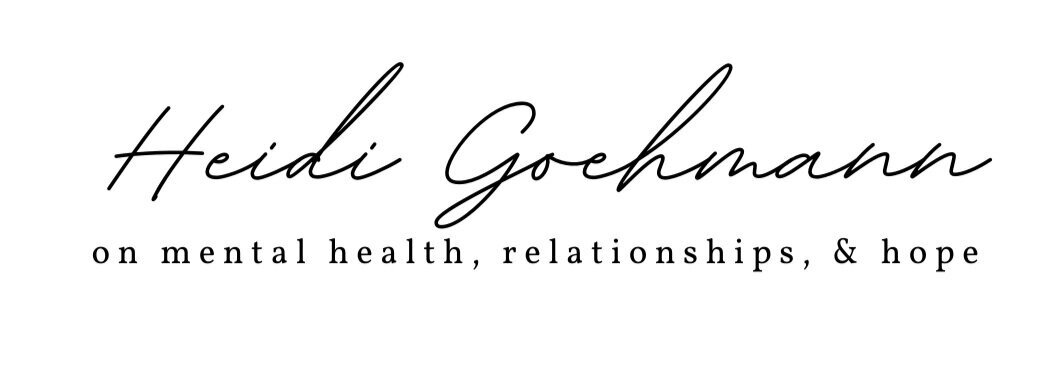Defining Happy
My husband recently told the story of his birthday.
Like many birthdays, it was kind of boring or at least less than exciting when you think of it. We ate some food. We had a cocktail. I bought him a store-bought apple pie with the crumb topping and fake whipped cream, both which he holds affection for in a way I will never understand. We talked about a hike or sitting around the fire pit but the stars and the weather didn’t align. We went to bed at 10pm like proper 40-year-olds and stayed up until 11pm when our teenagers came into our room for vitamins and a chat.
When I closed my eyes to sleep that night of his birthday, hearing his steady almost-asleep breathing, I was grateful for his 46 years- and considered that this was what growing old together in constancy felt like. We had achieved mediocrity, something I vacillated between lamenting and accepting quietly into the night.
Yet, my husband tells the story differently on our recent podcast. Dave tells the story of happiness:
Happiness isn’t perfection-oriented. There were flavors and foods I like. I didn’t have to work too much that day, just the average amount. Someone left a card on my desk. I was surrounded by the people who loved me. When they sang Happy Birthday, I experienced happiness in the form of their faces and voices. It was nice and it was a moment I needed.
Psychologically speaking it is problematic when we negate happiness in the name of being spiritual; we end up condemning our human desire for happiness as if God has no delight in our smiles and our moments of giddy enjoyment. With this “lesser” definition of happiness, I miss God in the moments, busily aiming for joy rather than being with the breadth of emotions inside of me, in response to the thing in front of me. Joy may have more permanency, as a fruit of the Spirit, but that does not mean happiness has no value.
What if there is mystery to joy and a momentary nature to happiness, but they both speak of God’s presence and interest in the human experience? All emotions are elements of a life lived, crafted by a Creator who values the whole package, the eternal plan, the suffering, the rejoicing, and the mediocrity of the mundane. When God’s gifts and goodness become more important to us than God Himself, we miss the Creator for the created, a deep loss.
It also doesn’t work to make a single emotion everything, happiness included. We will be disgruntled and dissatisfied, building our ash heap of lament in our bed at night for what isn’t, rather than seeing what also is. We call this all or nothing thinking. Our brains naturally go to “happy or sad” “satisfied or disappointed” “full or empty.” We are more complicated than that and it serves us well to allow a beautiful and challengingly complicated life to be our reality.
It all comes down to the definition of this elusive and culturally valuable emotion we know as happy.
In the podcast, you’ll hear about hedonia and eudaimonia. Ancient concepts related to happiness and satisfaction or “enoughness” feeds our sense of happy in our nervous systems as well as our sense of self. (Research references in the podcast show notes.) These help us have a more accurate definition of the word happy, so that our application and awareness of happy shifts toward something more accurate within ourselves.
Hedonia: pleasure oriented happiness
Eudaimonia: meaning-oriented happiness
Dave and I propose that both experiences of happiness have their place, but usually, culturally and contextually, meaning-oriented happiness is the elusive one we seem to be continually searching for. We can settle for hedonia, what feels good, but the consistency of happiness, a happy life held alongside all of life’s heavy weights, has more to do with “we’re ok” than “yay!”
Eudaimonia says within us:
We’re gonna make it.
There is more than what is heavy in this moment.
Delight is not far off, when trouble is ever near.
Life is more than what I feel, and what I feel is valid and informative of what I might need for this day, this year, this life.
God appreciates and notices my suffering and also my gladness.
In the podcast episode, we offer an exercise to unwind what brings you pleasure-filled happiness and meaning-filled happiness. In my newsletter for December 2023, as I do each month, our subscribers get a free download related to defining your values tin order o get a clearer picture of meaning-filled happiness in their life. (Subscribe at the bottom of the page to be included.)
Happiness has more to do with “we’re ok” than “yay!”?
Try applying this phrase in moments today, look for the reminders of that ok-ness to store them up in your nervous system for when less-than-ok is your reality.

